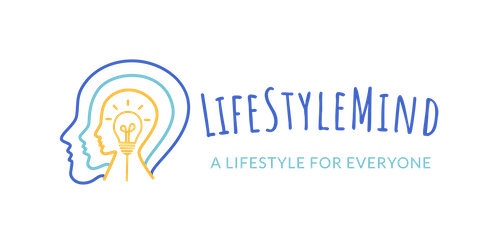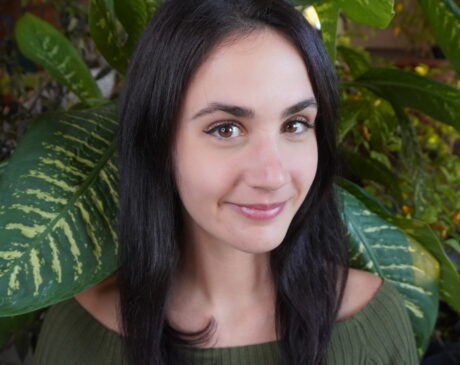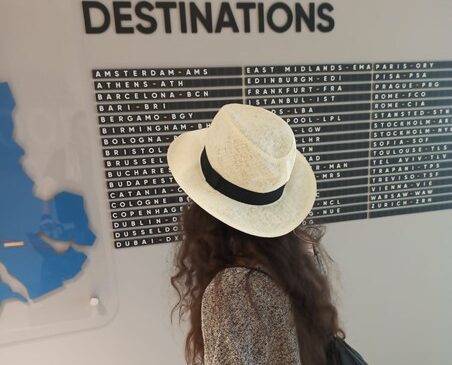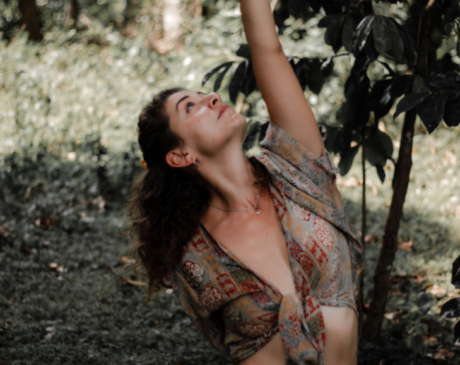Holi Fools: The Creative Duo Living Off Grid in Their Handcrafted Octagon Home
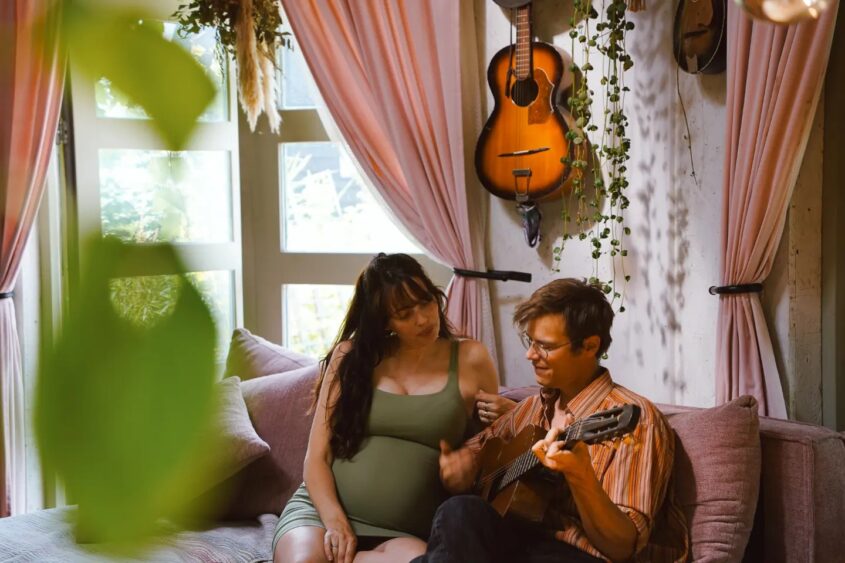
In a world that’s becoming increasingly fast-paced and urbanized, the idea of stepping away from it all to live a more grounded, intentional life is undeniably alluring. That’s exactly what Ruud and Romee, a creative couple living off-grid in a tiny house village, have done—and they’re loving every moment of it.
From building their own octagon-shaped home to living a more eco-conscious lifestyle surrounded by animals and nature, they have embraced the off-grid lifestyle fully. Not only that, but they also make music for a living, producing everything themselves.
We were lucky enough to chat with them about their journey, the challenges and joys of tiny house living, and how this lifestyle has transformed their day-by-day. Their answers were honest, inspiring, and full of useful tips for anyone dreaming of a simpler, more fulfilling life.
Get ready to meet Ruud, Romee, and their adorable animal companions, and discover what it’s really like to live off the grid.
Holi Fools’s interview
Hi guys, nice to meet you! Can you tell us a bit about yourselves, your life, and what led you to this lifestyle?
Ruud and Romee: “Hi guys, nice to meet you too! We are Ruud and Romee, and we live in a self-built octagon home in a tiny house village with our cat, two dogs, two pigs, and ten chickens.
Music is our passion and profession; we write, record, and produce all of our music ourselves. The choice to live this way was sparked by our desire to live more freely and in harmony with nature.
We wanted more freedom in our everyday lives, away from the noise of modern city life, and this lifestyle has given us exactly that.”
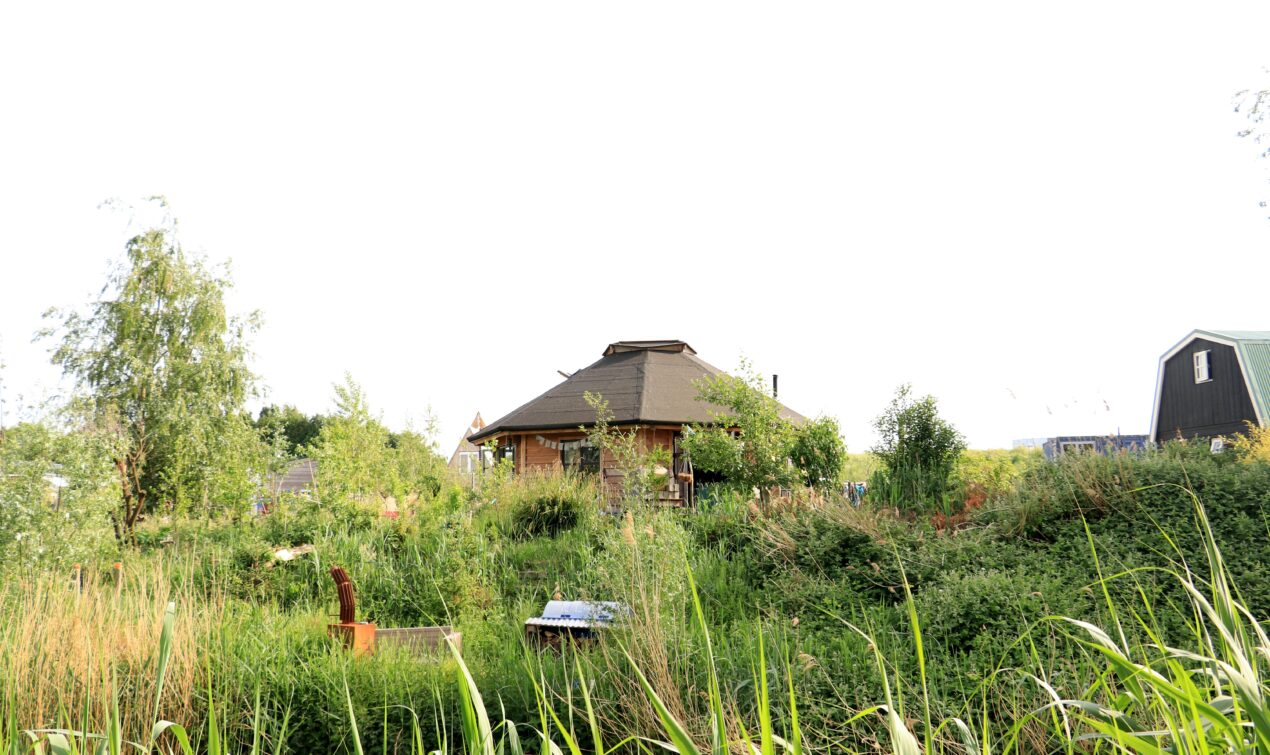
They both exude a deep sense of peace and contentment as they share this. Living in their unique home has allowed them to reconnect with their creative energies and slow down in a way that simply wasn’t possible before.
Ruud and Romee didn’t just choose this lifestyle out of practicality but because they craved something deeper—a life with more meaning and less unnecessary clutter.
2) What was your first off-grid home or travel experience?
Romee: “Before Ruud and I lived together, I lived in my vintage Volkswagen van for a while. It was during that time that I realized how little I actually needed to be happy.
Living in that small space made it clear that we don’t need much—just the essentials. And most importantly, it showed me that a big house doesn’t mean more happiness.”
Romee’s time in her van was pivotal, laying the groundwork for the couple’s decision to pursue tiny house living. It was about more than just downsizing; it was a shift in perspective. Less space meant more freedom.
Romee’s experience in the van taught her that happiness comes not from the things we own, but from the experiences we create.
3) Tell us more about your tiny house and what it’s like to live in it.
Ruud and Romee: “Our home is inspired by the Mongolian yurt, but we wanted a more permanent wooden structure. We kept some elements from the traditional yurt, like the skylight, which is one of our favorite features!
Instead of a round structure, though, we opted for an octagon, which creates a more modern feel. The house is very open, light-filled, and has a strong connection with the natural surroundings. Just recently, we added an extra room because… we’re expecting a baby!”
Their home reflects their unique personalities—practical, artistic, and rooted in nature. The octagonal structure not only sets their home apart but also gives it an incredibly open and welcoming feel.
The skylight at the center brings in beautiful natural light, making the space feel connected to the outside world. Now, with the upcoming arrival of their little one, their house is growing along with their family, perfectly blending form and function.
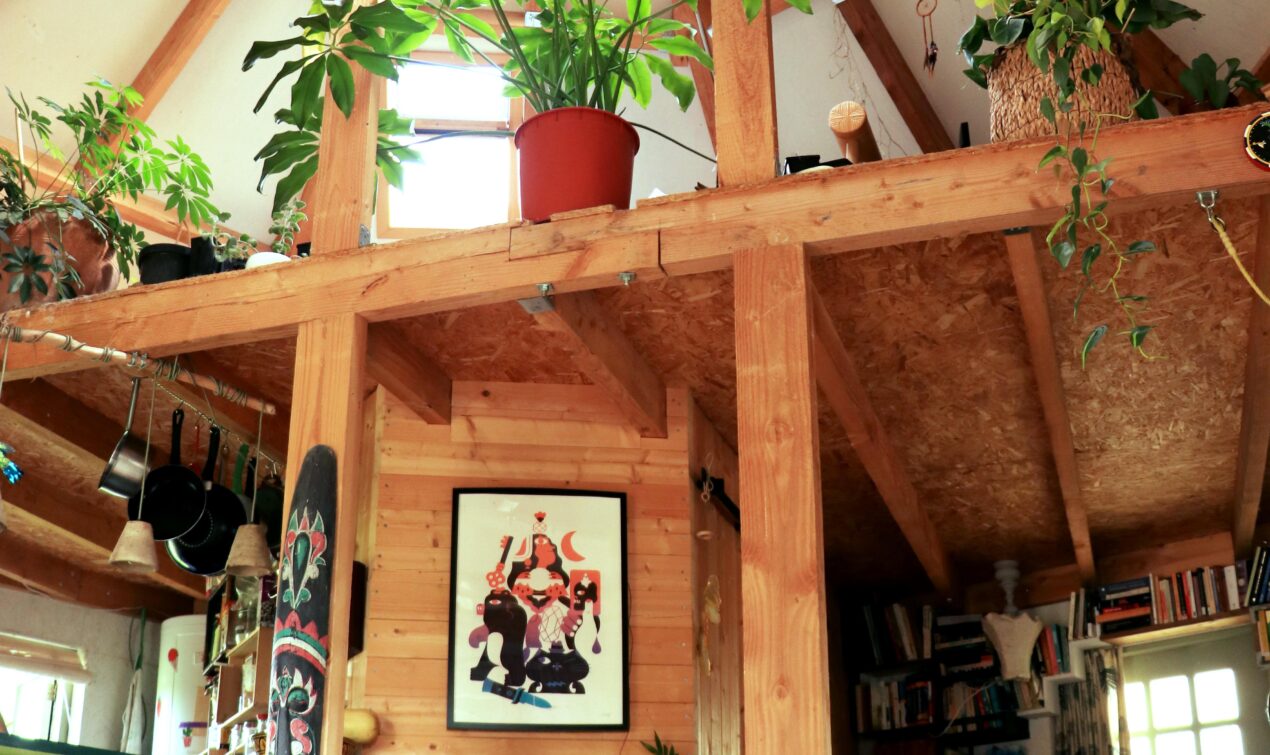
4) What kind of paperwork and procedures did you go through to build your eco-sustainable home?
Ruud and Romee: “Not that much, surprisingly! We have a contract with a foundation that handles all the necessary arrangements with the municipality.
To get a spot in the village, we had to submit a design and a building plan. The foundation reviewed several designs, and thankfully, ours was one of the few selected. Once approved, it was just a matter of building!”
Building their home wasn’t as complicated as many might think. Thanks to their partnership with a foundation that focuses on sustainability and community, they were able to bring their dream to life with minimal bureaucratic headaches.
The experience taught them that, with the right support, building an eco-sustainable home is more attainable than it may seem.
5) Why is it worth living in a tiny house, and what principles are these houses based on?
Ruud and Romee: “Well, our house isn’t exactly tiny—it’s around 50 square meters—but the principles still apply.
Living here allows us to have a large garden with trees, animals, and space for creativity. We have great neighbors and a sense of community.
Plus, our monthly expenses are quite low, which means we don’t have to get caught up in the constant grind of work. It gives us the freedom to focus on what really matters.”
The couple’s tiny house isn’t about living with less; it’s about living with intention. They’ve traded the stress of city life for a slower pace, where they can spend time on things that matter, like their music, their animals, and their soon-to-be child.
They’ve found that when you let go of the need for excess, you gain so much more in return—freedom, time, and peace.
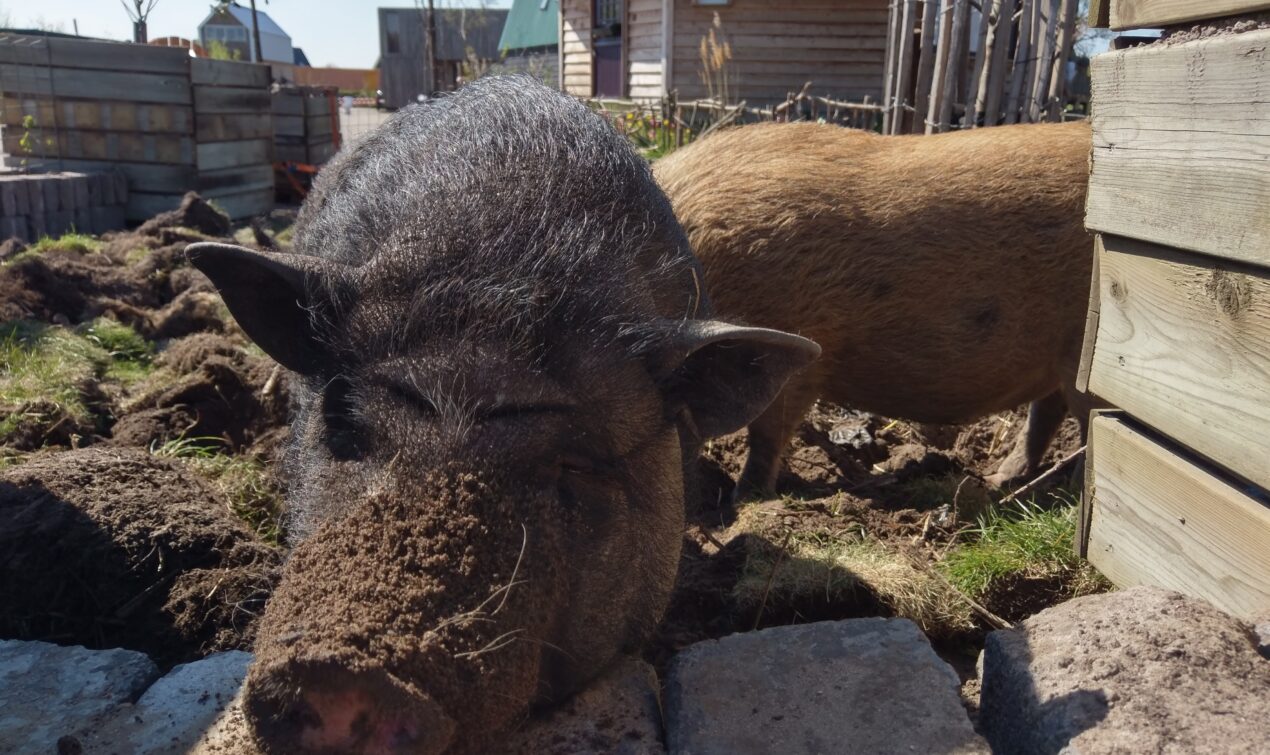
6) Have there been any significant changes in your life as a result of this lifestyle choice?
Ruud and Romee: “Absolutely. We’ve embraced a slower pace of life. There’s more freedom for our creativity to flow, and we’ve gained a much deeper understanding of nature and its rhythms. It’s also made us more mindful of how we live and what we consume.”
Their connection to the earth and the slower pace of living have given them space to breathe, think, and create.
Their lives are no longer dictated by the rush of the outside world, and this freedom has allowed their creativity to flourish. It’s a lifestyle that values quality over quantity in every sense.
7) What eco-sustainable issues do you care about, and what campaigns have you supported or would like to support?
Ruud and Romee: “One thing we’re passionate about is encouraging people to stop killing animals for food. It’s something we feel strongly about, and it’s part of the lifestyle we want to promote.”
Their advocacy for animal welfare is an extension of their eco-conscious lifestyle. By living in harmony with nature, Ruud and Romee hope to inspire others to make more compassionate choices when it comes to food and the environment.
8) What advice would you give to someone wanting to embark on this lifestyle?
Ruud and Romee: “Don’t be afraid, just take the leap. It’s more than worth it. There will be challenges, of course, but the rewards far outweigh them. Living this way has given us so much freedom, peace, and happiness.”
Their advice is simple but powerful. Stepping away from the norms of society can be intimidating, but if you’re willing to take the plunge, it can lead to a more fulfilling, connected, and joyful life.
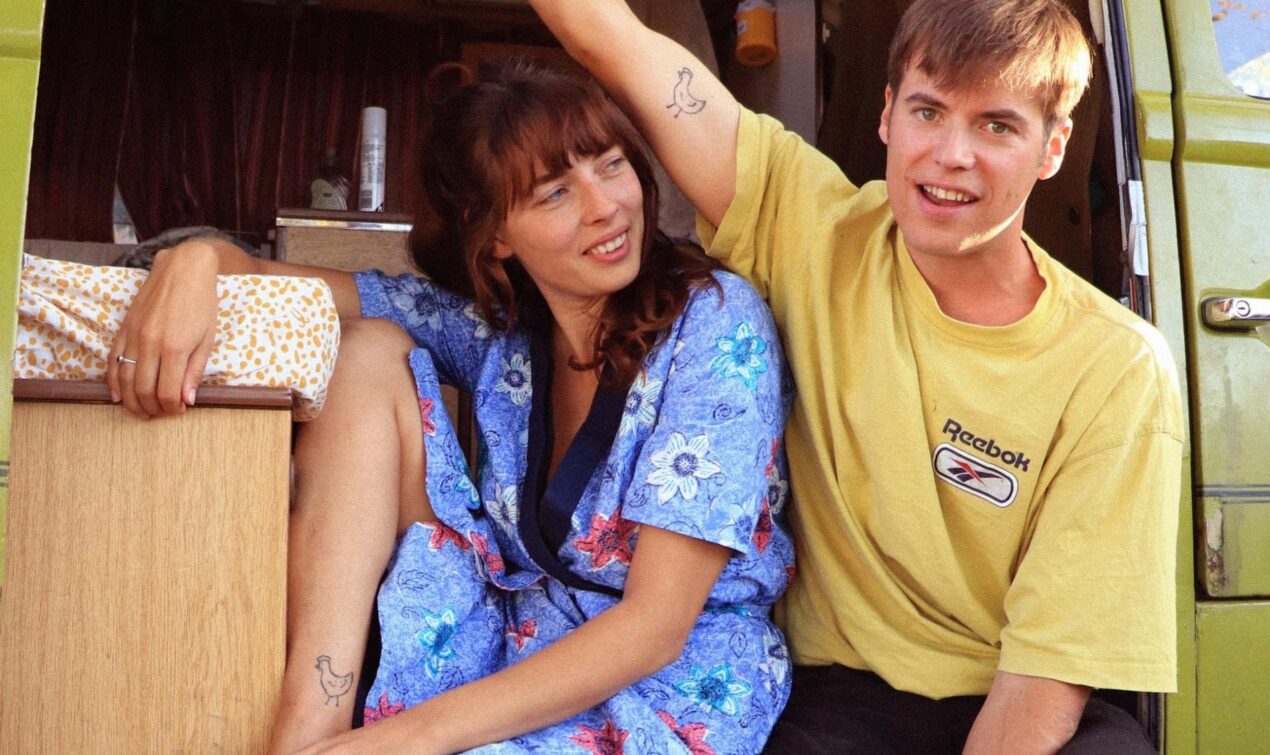
Conclusion
We’d like to extend a huge thank you to Holi Fools’ Ruud and Romee for taking the time to share their inspiring off-grid lifestyle with us. Their passion for living a more sustainable, creative, and intentional life is truly contagious.
If you want to follow their journey, check them out on Instagram, Spotify, and Facebook. Their music is as soulful and authentic as the life they live.
- Instagram: @holi_fools
- Spotify: Holi Fools
- Facebook: Holi Fools
